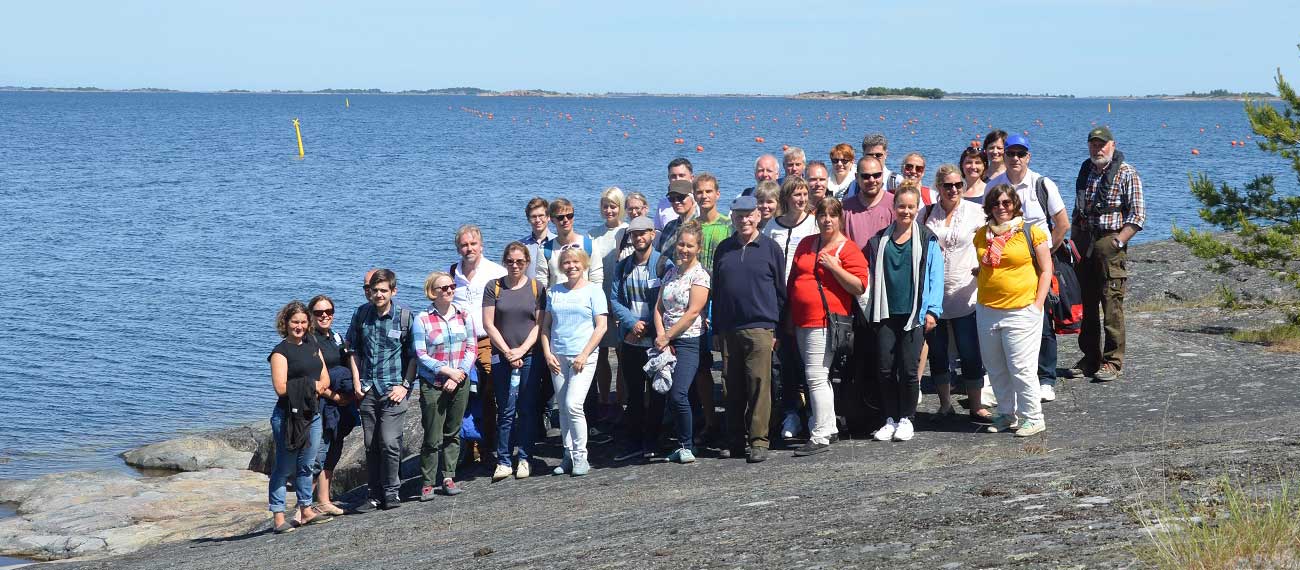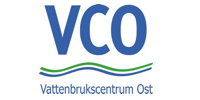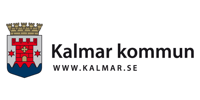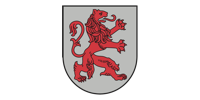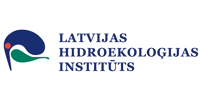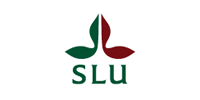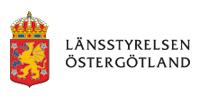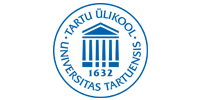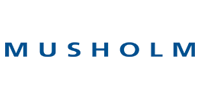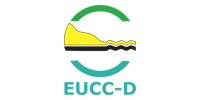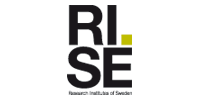Baltic Blue Growth partners
The Baltic Blue Growth partnership consists of mussel producers, public authorities, policy makers,
research institutions and network organisations from six Baltic Sea Region countries.
Region Östergötland is Lead Partner of the Baltic Blue Growth project. The region carries out the regional development policy, municipal coordination and government assignments as well as international coordination. It is responsible for regional issues like health and nursing, culture and creativity, entrepreneurship and employability as well as spatial development planning in East Sweden region. The department involved in the Baltic Blue Growth is involved in projects within business development, international projects and environmental challenges.
-

Lena Tasse
phone: +46 10-103 69 46
email: This email address is being protected from spambots. You need JavaScript enabled to view it.
The County Administrative Board of Kalmar is the representative of the Swedish state in the county of Kalmar. The Board is responsible for e.g. permits and supervision, environmental monitoring and implementation of several EU directives such as WFD, MSFD and the MSPD at the regional level. In 2009-2014, the Board operated pilot mussel farms. In Baltic Blue Growth, it will study a larger mussel farm in Kalmarsund, close to the northwest part of Öland. A special focus will be on environmental monitoring as well as spatial planning and legislation issues.
-
Rita Jönsson
email: rita.jonsson(at)lansstyrelsen.se
-
Eva T Hammarström
email: eva.hammarstrom(at)lansstyrelsen.se
The East Regional Aquaculture Centre (ERAC / VCO) is a non-profit organisation aiming to facilitate the transfer of information between research and industry, and to educate and advise interested parties on aquaculture. ERAC/VCO aids in the establishment of land-based fish farming in Eastern and Southern Sweden, as well as shellfish and algal culture in the Baltic Sea. Our organisation is currently running a pilot mussel farm in the St. Anna archipelago as part of the Baltic Blue Growth project. This site serves as an education and illustrative tool as well as functioning as a large-scale, experimental farm aiming to reduce phosphorous and nitrogen loads in the Baltic.
-

Jason Bailey
phone: +46 013-35 53 00
email: jason.bailey(at)vattenbrukscentrumost.se
Kalmar municipality is situated at the south-east coast of Sweden next to the Kalmar sound, the straight between Öland and our mainland. With 65,000 inhabitants, we are medium sized to be Swedish, and our landscape dominated by agriculture next to the coastline. We are secretariat for the Kalmar sound commission, a regional network with focus on implementing measures for a better water quality. In the Baltic Blue Growth project, we coordinate a work-package called “Focus farms to demonstrate mussel production in the Baltic Sea”. We know that in the Baltic Sea, municipalities, private companies, universities and fishery-organizations have already been piloting mussel farming for many years, so now we really want to bring this forward towards viable business!
-

Susanna Minnhagen
phone: +46 480 450172
email: susanna.minnhagen(at)kalmar.se
Kurzeme Planning Region is a subordinated public entity under supervision of the Ministry of Environment Protection and Regional Development (MEPRD) which:
- ensures planning and coordination of development of the Kurzeme planning region;
- carries out the function of public administration in the area of public transportation in compliance to its competence;
- ensures cooperation among municipalities and other state administration institutions (including development and implementation of regional projects).
Being interested in regional development projects in coastal areas and having participated in the project Baltic EcoMussel, Kurzeme Planning Region wants to provide stakeholders with more detailed and practical results.
-

Zaiga Ozolina
phone: +371 67331492
email: zaiga.ozolina(at)kurzemesregions.lv
The Latvian Institute of Aquatic Ecology (LIAE) is a state research institute, founded in 1995. Originally dedicated to basic and applied research of ecology and environmental problems in the Baltic Sea, LIAE has become the leading institution in the environmental expertise for marine and freshwater issues in Latvia. In the Gulf of Riga and the Latvian part of the Baltic Proper LIAE is responsible for marine environmental monitoring. In Baltic Blue Growth, LIAE will establish and maintain one of the project's mussel farms off the Latvian coast and perform environmental monitoring at the site. LIEA will also support environmental monitoring of other mussel farms. LIAE will also contribute to assessing environmental impacts and to carrying our mussel predation experiments. LIAE also leads a work package on policy issues in the project.
-

Juris Aigars
phone: +371 67601995
email: juris.aigars(at)lhei.lv
The Maritime Institute in Gdańsk is a research and development unit supervised by Ministry of Maritime Economy. For over sixty years the institute has been closely associated with the maritime economy. The institute conducts research work, scientific and implementation projects, studies and assessments for offshore maritime companies, maritime governmental agencies as well as for scientific institutions. It is a competence centre of maritime spatial planning (MSP) in Poland. In Baltic Blue Growth, our mail role is therefore to lead the activities related to MSP aspects. We will also work on legislation issues, socio-economic analysis and development of ecosystem compensation schemes.
-

Joanna Przedrzymirska
phone: +48.58. 301 9339
email: joaprz(at)im.gda.pl
The Ministry for Energy Transition, Agriculture, Environment, Nature and Digitalization (MELUND) is a supreme authority of the Federal State of Schleswig-Holstein in Germany. It is responsible for energy and nuclear safety, agriculture and nutrition economy, development of rural areas and villages, EU structural policy, animal health and welfare, coastal protection, nature conservation, climate protection, solid waste management and soil conservation, emission control, genetic engineering, fisheries and aquaculture, forestry and hunting in Schleswig-Holstein. In Baltic Blue Growth, MELUND is responsible for legislation issues where a clear step-by-step procedure must be provided for mussel farmers on all legal aspects related to starting and developing mussel farming in the Baltic Sea, especially licensing.
-

Roland Lemcke
phone: +49 431-988-4973
email: roland.lemcke(at)melur.landsh.de
Borgholm municipality is situated on Sweden’s second largest island Öland. The island is a popular tourist destination and the nature, bathing and fishing makes the coast of great recreational and economic value. By participating in Baltic Blue Growth, we hope to close the nutrient loop of the Baltic Sea and to lessen the negative impact on the coastal area. We will be working ob biological evaluation, i.e. food safety, feed evaluation and toxicity for poultry and fish so that we can evaluate, investigate and eliminate questions regarding Baltic blue mussels as an ingredient in feed.
-

Kristin Bertilius
phone: +46 485-884 80
email: kristin.bertilius(at)borgholm.se
The SUBMARINER Network for Blue Growth is a unique platform that brings actors from the whole Baltic Sea Region together to actively promote innovative and sustainable uses of marine resources. It operates across the whole knowledge triangle integrating perspectives from local to international scale, dfferent science disciplines as well as policy and economic stakeholders. Within Baltic Blue Growth, the network secretariat is implemeting a study to explore possible compensation mechanisms for the ecosystem services provided by mussel farming. The SUBMARINER Network is coordinating the project's external communication activities.
-

Lisa Simone de Grunt
phone: +49 (0)30 832 1417 41
email: lsdg(at)submariner-network.eu
The Swedish University of Agricultural Sciences (SLU) develops the understanding, sustainable use and management of biological natural resources. This is achieved by research, education and environmental monitoring and assessment, in collaboration with the surrounding community.
In Baltic Blue Growth, SLU will lead a work package on post-harvest processing of blue mussels, handling the complete chain from harvest to market. SLU will contribute to its partners with expertise in areas of economy, market and technology, and take the lead in the practical work in the development of the shell and meat fractionating line, in feed development, food safety and in feed evaluation for fish. SLU will also be active in work concerning environmental monitoring, with a main responsibility in environmental modelling.
-

Anders Kiessling
phone: +46 70-3919399
email: anders.kiessling(at)slu.se
The County Administrative Board of Östergötland is the representative of the Swedish state in the county of Östergötland. We are a link between the inhabitants, municipalities, government and central authorities. The board is responsible for e.g. permits and supervision, environmental monitoring and implementation of the WFD, MSFD and the MSPD at the regional level. In 2009-2011 we ran pilot mussel farms. In the Baltic Blue Growth project, we will study a larger mussel farm in St Anna archipelago. The partner will lead project activities related to environmental monitoring, and participate in the work related to maritime spatial planning and legislation issues.
-

Helene Ek Henning
phone: +46 10-223 54 40
email: Helene.Ek(at)lansstyrelsen.se -

Maria Åslund
phone: +46 10 223 54 63
email: maria.aslund(at)lansstyrelsen.se
The University of Tartu is Estonia's leading centre of research and training. Estonian Marine Institute, with our extensive pool of world-leading experts and state-of-the-art facilities, is the key maritime institution under the university and is the first and largest such institute in Estonia. Our mission is to enhance the knowledge and understanding on the functioning of the Baltic Sea ecosystem and to seek smart policy solutions in order to reach better environmental quality and the sustainability of ecosystem services.
In the Baltic Blue Growth project, the partner's work focuses on identifying areas in the Baltic having environmental conditions conducive to mussel production and to quantify the potential environmental impacts of mussel farms.
-
Jonne Kotta
phone: +372. 671 8935
email: jonne(at)sea.ee
CRM (Coastal Research & Management) has more than 20 years of expertise in ecological evaluation and entrepreneurship in marine aquaculture. Main fields of our own aquaculture activity are seaweed farming (sugar kelp, bladder wrack), mussel farming, off-shore microalgae farming and cultivation of mullets. Ecological surveys on aquaculture have been performed in Israel, Chile, Indonesia, Cyprus and in the Baltic Sea. CRM is currently elaborating and improving methods and strategies for the establishment of IMTAs in the Baltic.
In Baltic Blue Groeth, CRM will perform assessments of mussel growth and potential environmental impacts of local mussel farms in order to optimize mussel production with minimal environmental footprint.
-

Peter Krost
phone: +49-431-3645-880
email: peter.krost(at)crm-online.de
Musholm is a Danish aquaculture company specialized in breeding, processing and sale of trout and trout roe. Production is vertically integrated and covers the whole fish life cycle from egg hatch to adult fish set out in large networks in the sea farms in the Great Belt. Musholm has – in the last 15 years – co-produced blue mussels.
Musholm’s role in the Baltic Blue Growth project is to further optimize technique and practice, test different meshsizes, tubes etc.(substrates), sinkable farms and predator control methods.
-

Torben Wallach
phone: +45 27382976
email: tw(at)musholm.com
EUCC – The Coastal Union Germany (EUCC-D) was founded in 2002 with the aim of promoting sustainable coastal and marine development by bridging the gap between scientists, environmentalists, planners and policy makers. Since long the ngo understood that sustainable development includes human wellbeing based on social, economic and environmental aspects. Its expertise spans interdisciplinary topics, such as eutrophication management, sustainable fisheries and aquaculture, coastal tourism and beach management etc. EUCC-D has long experience in water quality issues of coastal waters, stakeholder communication and engagement, as well as education and capacity building. Therefore, different information channels and tools will be applied.
-
Nardine Stybel
phone: +49 381 5197279
email: stybel(at)eucc-d.de
The Swedish Institute of Agricultural and Environmental Engineering (JTI) is an industrial research institute engaged in research, development and information in the areas of agricultural engineering and environmental technology.
In the project, the partner will construct, build and operate a pilot line for post-harvest mussel meal production. Economic calculations of the pilot line will also be done. JTI is also responsible for procurement of mussel meal for the feed experiment which will be done in the beginning of the project.
JTI will change name to RISE in the beginning of 2017.
-

Ola Palm
phone: +46 10 - 516 69 31
email: Ola.Palm(at)jti.se

